ITRC PFAS Beyond the Basics: PFAS Treatment Technologies Training
Archived: Thursday, June 13, 2024
Sponsored by: Interstate Technology and Regulatory Council
This training class builds on the earlier information for treatment technologies presented in the PFAS 101 CLU-IN training. It provides more in-depth information regarding considerations for implementing integrated PFAS treatment technologies and remediation strategies. This training introduces the concept that achieving site remedial objectives will likely necessitate the implementation of multiple treatment technologies and remediation strategies (i.e., an integrated remedial strategy). Specifically, this training uses a hypothetical conceptual site model to frame the discussion of remedial approaches for PFAS impacted source area soil, source area groundwater, and more dilute groundwater plumes. The training concludes with a discussion of select field implemented and developing disposal and destructive technologies for managing treatment residuals.
Resources and further details for the topics included in this training are in the published PFAS-1 guidance document in Sections 12 and 15 along with referenced tables.
Learning Objectives:
- What types of media, sources, and pathways might require intervention and treatment?
- How are field-implemented PFAS remediation technologies commonly applied?
- What developing technologies show promise for PFAS treatment?
- How may integrated remedial strategies be applied?
- What are the key considerations for applying field implemented and developing technologies?
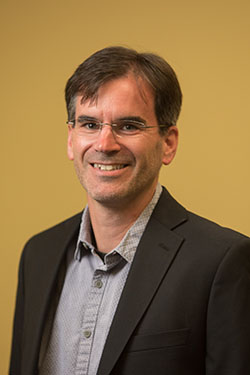 Rich Evans, GES (revans@gesonline.com)
Rich Evans, GES (revans@gesonline.com)
Richard Evans, PE, is a Senior Vice President with overall responsibility for the firm’s technical practices in the areas of engineering, hydrogeology, air quality, drones, and data management and visualization. He has 25 years of experience in the environmental field. Rich leads the behavior-based Quality program and the emerging contaminants team at GES. He is also a member of GES’ Artificial Intelligence team. In addition to being a member of the ITRC PFAS team, he is on the steering committee of the Sustainable Remediation Forum (SURF) Environmental Justice team. Rich holds a Bachelor’s degree in Chemical Engineering from the University of Pennsylvania.
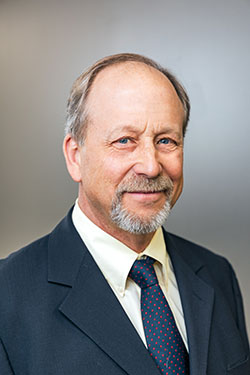 Nathan Hagelin, WSP (nathan.hagelin@wsp.com)
Nathan Hagelin, WSP (nathan.hagelin@wsp.com)
Nathan Hagelin is Senior Vice President and the Director of the Office of Technical Practice for WSP in the US. He is a remediation technology leader in WSP’s Emerging Contaminants Practice Area Network with a focus on PFAS groundwater treatment. He is a Licensed Geologist, Licensed Environmental Professional, and Board-Certified Environmental Scientist working for 35 years on the remediation of contaminated industrial properties and military installations. He has prior experience as a Hydrologist with the U.S. Geological Survey Water Resource Division.
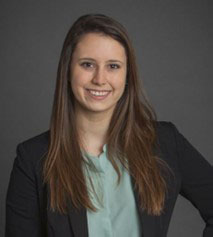 Emily Pulcher, P.E., Burns and McDonnell (eapulcher@burnsmcd.com)
Emily Pulcher, P.E., Burns and McDonnell (eapulcher@burnsmcd.com)
Emily is a chemical engineer at Burns & McDonnell in St. Louis, Missouri, where she specializes in environmental compliance and remediation. She has been the technical lead on PFAS treatment technology evaluations including foam fractionation, granular activated carbon, ion exchange, reverse osmosis, and novel destructive methods to help clients prepare to face evolving regulatory challenges. She also serves as co-lead of Burns & McDonnell's PFAS and emerging contaminants practice. In this role, Emily coordinates a team of PFAS-focused professionals to provide comprehensive PFAS risk-mitigation services to clients nationwide. She has a BS in chemical engineering from Washington University in St. Louis and is currently completing a MS in Environmental Engineering from the Missouri University of Science & Technology.
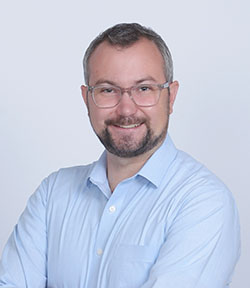 Andrew Safulko, P.E., Brown and Caldwell (Asafulko@brwncald.com)
Andrew Safulko, P.E., Brown and Caldwell (Asafulko@brwncald.com)
Andrew Safulko is the National Technology and Innovation Leader for Brown and Caldwell's Site Investigation, Remediation, and Solid Waste practice. Andrew received his bachelor's degree in Environmental Engineering from the University of Colorado at Boulder and his master's degree in Environmental Engineering from the Colorado School of Mines. Andrew is a licensed Professional Engineer in the state of Colorado and supports private and municipal clientele in addressing PFAS challenges. Andrew co-leads the Interstate Technology and Regulatory Councils (ITRC) PFAS Treatment Technologies group.
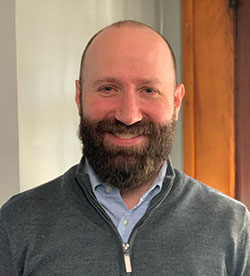 Cliff Shierk, MN Pollution Control Agency (Cliff.Shierk@state.mn.us)
Cliff Shierk, MN Pollution Control Agency (Cliff.Shierk@state.mn.us)
Cliff Shierk is a principal engineer with the solid waste permitting group at the Minnesota Pollution Control Agency. He has 17 years of experience in the field of environmental engineering and has worked extensively with landfills, remediation systems, and large environmental cleanup projects. He began his career as a design engineer on a large "lift-and-line" landfill project involving PFAS-laden waste and has been addressing PFAS in landfill leachate and groundwater ever since. Cliff is a registered professional engineer in Minnesota and holds degrees from the University of Illinois at Chicago (M.S.) and the University of Minnesota-Twin Cities (B.C.E.). He has served as a co-leader of the ITRC PFAS Treatment Technologies writing subgroup since 2018.
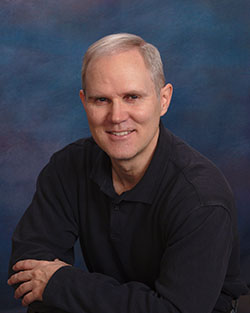 Ted Tyler, Cardno (ted.tyler@cardno-gs.com)
Ted Tyler, Cardno (ted.tyler@cardno-gs.com)
Mr. Tyler has 30 years of experience in the characterization and remediation of a wide variety of contaminants under federal (CERCLA, RCRA), state, tribal, and international regulatory programs. His experience includes but is not limited to providing solutions to challenging environmental issues at Department of Defense sites (Navy, Air Force, Air National Guard), airports/airfields, refineries, industrial/commercial and tribal sites. His contaminant experience includes, but is not limited to, emerging contaminants (PFAS; 1,4-dioxane; perchlorate), chlorinated solvents, fuel hydrocarbons (jet fuels, leaded-unleaded gasoline, diesel), dioxins, metals (e.g., hexavalent chromium, arsenic), munitions and explosives of concern (MEC), radionuclides (radium, strontium), and others. Mr. Tyler has been a contributing author providing thought leadership for the ITRC for almost 20 years with teams such as PFAS; 1,4-dioxane; DNAPL Site Characterization, Fractured Rock Characterization and Remediation, and Perchlorate.
 Li Wang, CADTSC (Li.Wang@dtsc.ca.gov)
Li Wang, CADTSC (Li.Wang@dtsc.ca.gov)
Li Wang received his PhD in Environmental Engineering from Tufts University. He has worked in both China and U.S. on many site investigation and remediation projects. Currently, Li is a senior hazardous substances engineer at California Department of Toxic Substances Control (DTSC) providing engineering review and technical support for cleanup projects overseen by the state. He is also the technical lead of the PFAS Work Group within DTSC's Site Mitigation & Restoration Program.
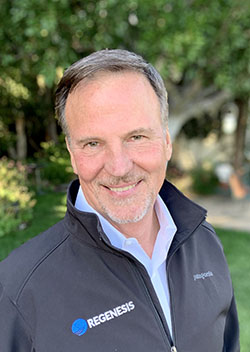 Scott Wilson, REGENESIS (SWilson@Regenesis.com)
Scott Wilson, REGENESIS (SWilson@Regenesis.com)
Scott Wilson is President & CEO of REGENESIS, a global leader in the development of environmental restoration technologies. Patented technologies developed by REGENESIS have been used to successfully remediate >30,000 contaminated project sites worldwide. Mr. Wilson is a widely published expert with 30 years of experience in applied microbiology and bioremediation processes. He has overseen the design and implementation of more than 100 innovative full-scale remediation projects employing advanced technologies. He served for eight years on the faculty of the National Water Well Association (now the NGWA). Mr. Wilson received a M.S. from the University of Texas at El Paso in applied microbiology (related to geochemistry and petroleum engineering), and an M.B.A. from the Kellogg School of Management at Northwestern University.
Moderator:
ITRC Training Program (itrc@itrcweb.org)
Webinar Slides and References:
Additional Resources:
- These materials will be available by Thursday, June 13, 2024
Help & FAQs
- Frequently Asked Questions
- Content Questions?
Call ITRC Training Program at 202-266-4932 or itrc@itrcweb.org - Technical Problems?
Leave us a comment - Cancel Your Registration
- My Participation Records
- CEU Credits and PDHs
Zoom Resources
Before Webinar Day
This seminar will be delivered through Zoom. Participants are encouraged to update to the latest version of the Zoom application for the best experience.
If you are unable to install the Zoom application, most functions will be available if you join just using a modern web browser such as Chrome, Edge or Firefox. We strongly encourage you to run the Zoom Meeting Test prior to attending this webinar. Technical support on the day of the webinar will be very limited and subject to significant delays.
Backup Conference Call
If you cannot participate using online audio, you may join the optional call in line. After checking in for the live event using the instructions listed below, you will see several options to participate. Please click the links in option 4 to follow along by phone and obtain the call in number. If you cannot access the phone number, you may request the call in line from the event moderator in the Q&A or send an email to Jean Balent at balent.jean@epa.gov
Click on "Join Webinar" at the top of this screen, enter your exact first and last name as you registered and enter the number of people attending at your location (including yourself). You should then be taken to the Zoom meeting room. Join with Zoom Application: For those joining with the Zoom application, you may be prompted to sign with a zoom account or join as a guest without signing in.
If joining as a guest, you will be prompted to enter your name and email address. Remember your name, image, video or voice may be visible to others in the live event. When done, click "Join" When it is time for the live event to start, the meeting host will admit you to the live Zoom meeting. Join via web browser (without the Zoom Application): For those joining with a web browser, you may close any pop ups prompting you to download the Zoom app. The next window will allow you to enter your name (first name and last name) and check the box that you are not a robot. Click the blue join button. You may also be asked to provide your email address before joining the room. Remember your name, image, video or voice may be visible to others in the live event. When done, click "Join" When it is time for the live event to start, the meeting host will admit you to the live Zoom meeting. You may need to periodically refresh the browser window to confirm if the host has admitted you. The presenters will control what slide you are viewing. You may submit questions online for the instructors to answer during the webinar by typing in the "Q&A" area. It is not necessary to wait until the question and answer periods to submit questions. At the end of the webinar you will be guided to our feedback form and links to additional resources, including the complete presentation. These links will remain active after the webinar. Provided for your convenience. Importing or accepting the invitation within this iCalendar file is not required, and declining the invitation does not cancel your registration. For additional information on iCalendar, please see our
iCalendar Help It is EPA's policy to make reasonable accommodation to persons with disabilities wishing to participate in the agency's programs and activities, pursuant to the Rehabilitation Act of 1973, 29 U.S.C. 791. Any request for accommodation should be made to ITRC Training Program at 202-266-4932 or itrc@itrcweb.org, preferably one week or more in advance of the seminar, so that EPA will have sufficient time to process the request. EPA would welcome specific recommendations from requestors specifying the nature or type of accommodation needed. EPA welcomes specific recommendations from requestors specifying the nature or type of accommodation needed. Please note that CLU-IN provides both alternate phone call-in options and closed captioning for all webinars, and requests for these specific accommodations are not necessary.
Webinar Day, Checking In
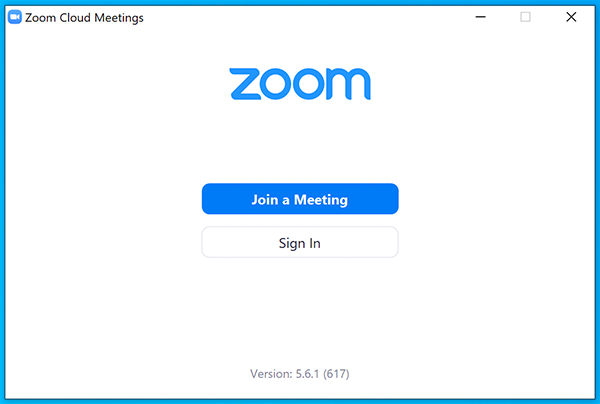
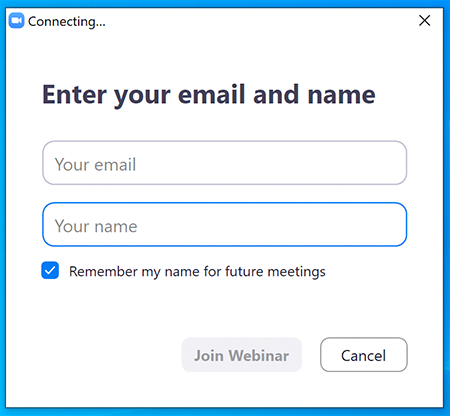
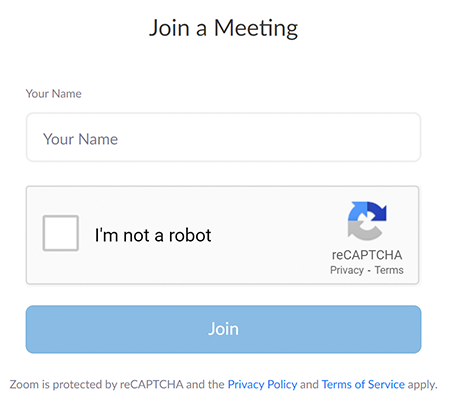
Moving Through Slides
Feedback & Links to Additional Resources
iCalendar File
Rehabilitation Act Notice for Reasonable Accommodation
Rehabilitation Act Notice for Reasonable Accommodation
It is EPA's policy to make reasonable accommodation to persons with disabilities wishing to participate in the agency's programs and activities, pursuant to the Rehabilitation Act of 1973, 29 U.S.C. 791. Any request for accommodation should be made to ITRC Training Program at 202-266-4932 or itrc@itrcweb.org, preferably one week or more in advance of the webinar, so that EPA will have sufficient time to process the request. EPA would welcome specific recommendations from requestors specifying the nature or type of accommodation needed. EPA welcomes specific recommendations from requestors specifying the nature or type of accommodation needed. Please note that CLU-IN provides both alternate phone call-in options and closed captioning for all webinars, and requests for these specific accommodations are not necessary.
Webinar Recording
By participating in this CLU-IN webinar, you automatically agree to authorize recording of audio and visual content presented during this live event and consent to subsequent use of this recording in the public domain by the U.S. Environmental Protection Agency. This recording may include questions, comments and poll responses provided by you during the live event in addition to your name, voice, image or likeness. This recording will be made available after the conclusion of the live event as part of the CLU-IN webinar archives, and will remain available indefinitely. If you do not wish to consent to the recording, please do not join the live event, and contact Jean Balent at 202-566-0832 or balent.jean@epa.gov to discuss your concerns.
Content Disclaimer
This webinar is intended solely to provide information to the public. The views and opinions expressed as part of this webinar do not necessarily state or reflect those of the U.S. Environmental Protection Agency. It is not intended, nor can it be relied upon, to create any rights enforceable by any party in litigation with the United States, or to endorse the use of products or services provided by specific vendors. With respect to this webinar, neither the United States Government nor any of their employees, makes any warranty, express or implied, including the warranties of merchantability and fitness for a particular purpose, or assumes any legal liability or responsibility for the accuracy, completeness, or usefulness of any information, apparatus, product, or process disclosed, or represents that its use would not infringe privately owned rights.

